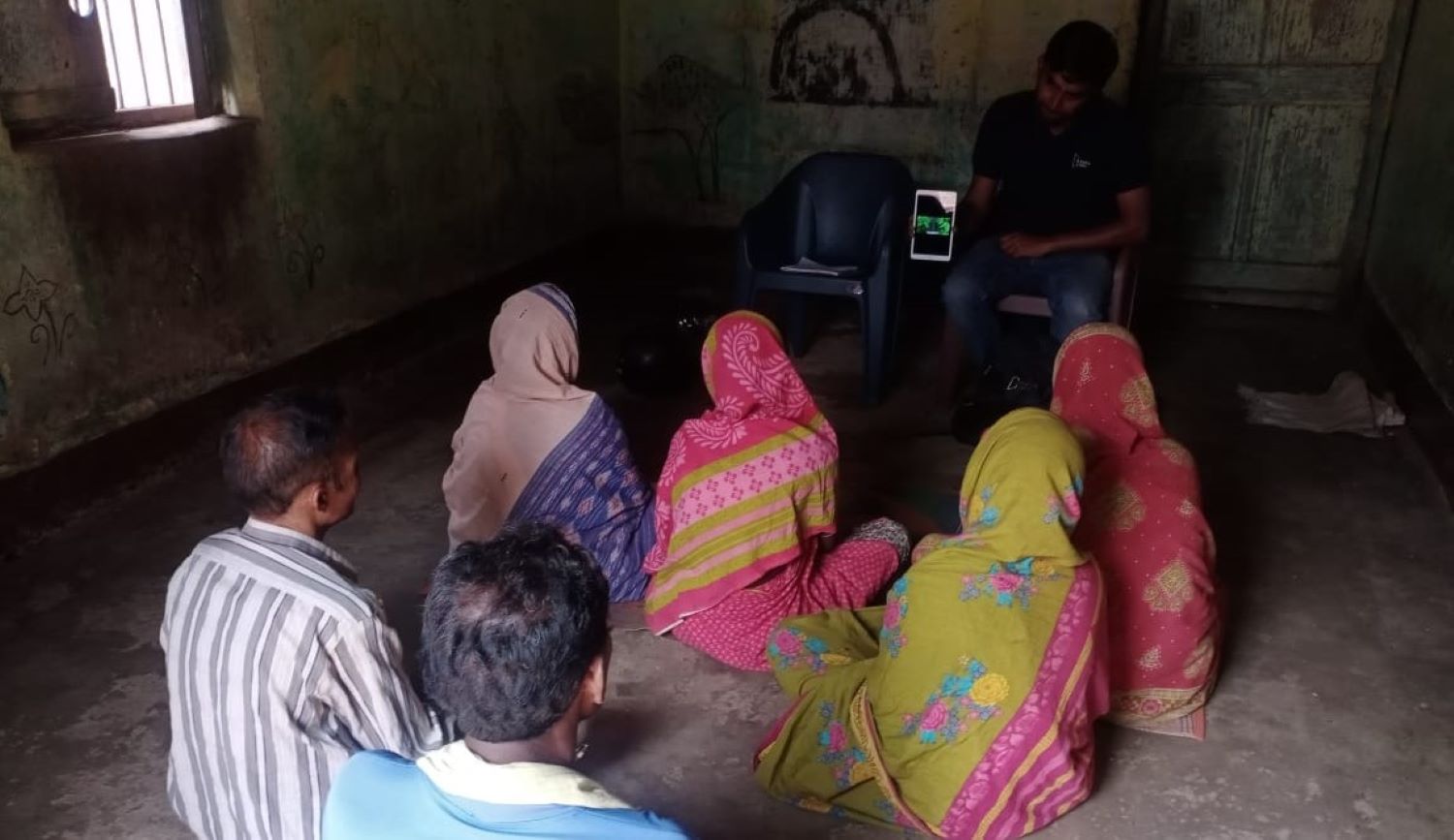How Satellites and Smartphones Can Expand Credit to Women Farmers

Two female farmers in Manipur getting their field ready for upcoming sowing season, March 2023 | Sasikumar RD and Dinesh Lodha, Dvara Holdings
New remote sensing technologies may help women farmers access credit for agriculture
Smallholder farmers, especially women, often lack access to credit from formal financial institutions. Though women represent nearly half of the agricultural labor force, the UN’s Food and Agriculture Organization estimates that limited access to inputs, resources, and services depress the yield women farmers produce by up to 30 percent, relative to men.
The report is clear: there is no skill gap, there is a gap in access to agricultural resources — and it costs the world the ability to feed an estimated 100-150 million people. A new lending model in India could shift this norm.
The International Food Policy Research Institute (IFPRI), supported by CEGA’s Digital Credit Observatory (DCO), partnered with Dvara E-Registry — an organization that provides digital services to farmers to advance financial inclusion — to test a new lending model, KhetScore, in Odisha, India. KhetScore uses satellite imagery and smartphone pictures embedded with location data to assess creditworthiness, monitor crops, and settle claims. This new process could expand access to credit by reducing the cost of screening and monitoring agricultural loans.
The research team analyzed survey data and more than 3,500 interviews with Odisha residents to understand the relationships between respondent gender, empowerment, and demand for and access to credit (Kramer, Pattnaik and Ward, 2021). When traditional credit scoring was used to assess creditworthiness, women were less likely to apply for a loan and preferred to borrow smaller amounts than men.
When KhetScore technology was used, however, both men and women were more likely to apply for a loan and both preferred larger loan sizes, but the effects were largest for women. Similarly, using KhetScore and providing crop insurance boosted demand among both men and women, with women seeing the most gains.

These promising results helped Dvara attract financing to expand lending to 10,000 new smallholder farmers across five Indian states, even as the DCO funds further research from the investigative team. Through a randomized evaluation, the team will produce insights into how this new credit scoring technology can increase farmer productivity, lower both indebtedness and default, and expand access to credit for women farmers.
“Going into this research, we were really concerned about a potential backlash for women of a technology-based lending intervention, given that digital literacy is longer among women in this setting,” shared Berber Kramer, one of the lead researchers for the project. However, the outcomes suggest KhetScore could play a role in a gender-responsive strategy to lend to more women in agriculture.
“We have a long way to go to see women as primary decision makers of both agricultural and economic choices made in rural Indian households,” said Dvara’s co-founder, Tharakeswar Ganta. “Continuing support from CEGA’s Digital Credit Observatory to understand the intricacies of credit will help organizations like Dvara E-Registry accelerate financial inclusion.”
CEGA’s larger goal is to show how the evidence-to-policy link can be a virtuous cycle. Research helped demonstrate the benefits of a new approach to agricultural lending, facilitating its expansion. Now, researchers will continue to investigate, with the goal of generating evidence to further improve the lives of smallholder farmers. “KhetScore may actually benefit women more than men. And preliminary findings from a follow-up study suggest that KhetScore loans had positive impacts especially for women, even improving their mental health. It seems like this intervention is making great strides at reducing gender gaps and inequities in agricultural finance, and we are looking forward to partner with DCO to be unpacking these impacts further,” said Kramer.
Endnotes
[1] More formally, KhetScore utilizes georeferenced photos. Georeferencing is a technique that matches data, specifically images in this case, to a known Earth coordinate system – usually longitude and latitude – so users can determine where data points are located on the Earth’s surface.



